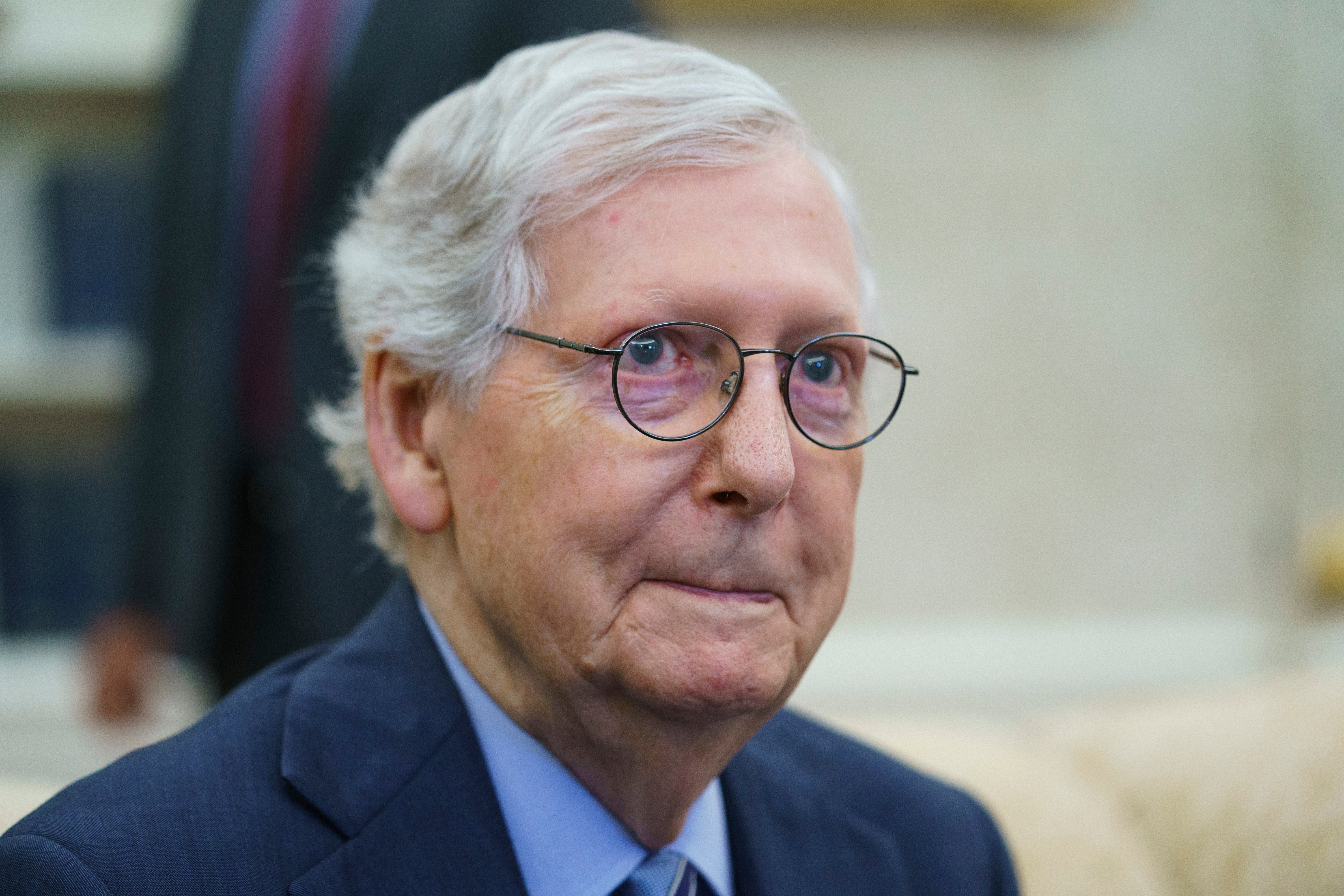McConnell opposes Alabama Republican's blockade of military nominees over Pentagon abortion policy
Senate Republican Leader Mitch McConnell says he won’t support a fellow GOP senator’s blockade of military nominees, backing Democrats and Defense Secretary Lloyd Austin who have said that the holdup is harming national security

Your support helps us to tell the story
From reproductive rights to climate change to Big Tech, The Independent is on the ground when the story is developing. Whether it's investigating the financials of Elon Musk's pro-Trump PAC or producing our latest documentary, 'The A Word', which shines a light on the American women fighting for reproductive rights, we know how important it is to parse out the facts from the messaging.
At such a critical moment in US history, we need reporters on the ground. Your donation allows us to keep sending journalists to speak to both sides of the story.
The Independent is trusted by Americans across the entire political spectrum. And unlike many other quality news outlets, we choose not to lock Americans out of our reporting and analysis with paywalls. We believe quality journalism should be available to everyone, paid for by those who can afford it.
Your support makes all the difference.Senate Republican Leader Mitch McConnell said Wednesday that he won’t support a fellow GOP senator’s blockade of military nominees, backing Democrats and Defense Secretary Lloyd Austin who have said that the holdup is harming national security.
Alabama Sen. Tommy Tuberville is objecting to the normally routine practice of confirming dozens of military nominations, a move that would force the Senate to hold potentially hundreds of votes to confirm non-controversial senior military officers. Tuberville has not backed down from his now-monthslong pledge to hold up the nominees over the Pentagon’s abortion policy, which provides travel funds and support for troops and dependents who seek abortions but are based in states where they are now illegal.
“No, I don’t support putting a hold on military nominations,” McConnell told reporters, in response to a question about Tuberville’s blockade. “I don’t support that. But as to why, you’ll have to ask Sen. Tuberville.”
McConnell’s comments have no practical effect on Tuberville’s holds, because any senator can hold up any Senate action. But the GOP leader's position further isolates the Alabama Republican as lawmakers and national security officials have said that the holdup may have dangerous effects.
In a letter sent last week to Massachusetts Sen. Elizabeth Warren, a Democrat, Austin wrote that he has “deep concern” about the delays in confirmations. He said the Pentagon estimates that approximately 650 officers covered by the hold – those at the one-star to four-star levels – will require Senate confirmation between now and the end of the year.
The delays pose “a clear risk to U.S. military readiness, especially at his critical time,” Austin wrote, adding that never before has one senator held up so many officers. The glut of vacancies would break down the department’s normal flow of leadership and breed uncertainty and confusion, he said, risking operations in “every theater, every domain, and every service.”
At a hearing earlier this year, Austin defended the abortion policy by saying that tens of thousands of women in the military live and work in locations that don’t have regular reproductive health care. “This policy is based on strong legal ground,” he said.
A spokesman for Tuberville said Wednesday that McConnell’s comments have not changed his position. The senator has said repeatedly that he won’t budge.
“Secretary Austin thought abortion is more important than his highest-level military nominations,” he said late last month, after Democrats tried to call up the nominations on the Senate floor. “Secretary Austin could end the policy today, and I would lift my hold. Secretary Austin has chosen not to do that.”
Tuberville has argued that Schumer can bring the nominations to the Senate floor at any time and hold individual votes. But each nomination would require at least two votes and days of Senate time, and Democrats have argued that it would set a dangerous precedent to hold partisan votes on routine military nominations that have traditionally been unanimously approved by voice vote.
Schumer said on the Senate floor Wednesday that Republicans are willing to jeopardize U.S. “standing abroad, the livelihood of service members, and our military readiness” over the issue of abortion access.
“Our national security is not a bargaining chip for radical right-wing policies,” Schumer said.
___
Associated Press writer Lolita Baldor contributed to this report.